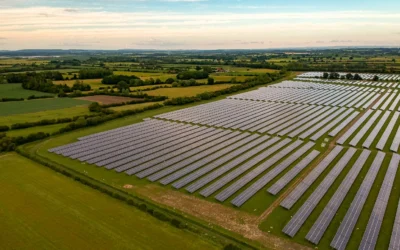Carbon fiber-reinforced polymers (CFRPs) are increasingly vital across various industries, including aerospace, automotive, and renewable energy, due to their impressive strength, lightweight properties, and resistance to chemicals. However, the traditional production of carbon fiber is a costly and energy-intensive process, consuming up to 14 times more energy than that required for steel production. This high energy demand limits the use of carbon fiber primarily to high-end applications.
In a development that could reshape the landscape of carbon fiber manufacturing, a research team at the University of Limerick (UL) has unveiled a novel method that dramatically reduces energy consumption while maintaining the essential material properties. Their innovative project, referred to as CARBOWAVE, utilises plasma and microwave heating techniques instead of conventional thermal processing, resulting in an astounding 70% decrease in energy usage.
Carbon fiber production typically involves polyacrylonitrile (PAN), which must undergo multiple transformation stages, including stabilization and carbonisation that require temperatures exceeding 1,000°C. These traditional thermal processing methods necessitate extensive electricity and natural gas usage, leading to high production costs and elevated carbon emissions. While researchers have endeavoured to use biobased polymers like lignin as alternatives, these substitutes have not demonstrated equivalent performance to PAN-based carbon fibers.
The CARBOWAVE project introduces microwave-assisted heating, a technique not previously applied to carbon fiber production, thus making it a groundbreaking advancement. Realising that both PAN and lignin do not inherently absorb microwaves, the UL team employed carbon-based nanomaterials as susceptors. These materials act by absorbing microwave energy and converting it into heat. Specifically, carbon nanotubes (MWCNTs), selected for their high microwave absorption capacity and uniform distribution, efficiently heat the fibers when exposed to microwave radiation.
This method not only eliminates the necessity for prolonged high-temperature treatments but also enhances production speed while significantly cutting down on energy consumption. Moreover, the advantages of microwave heating—including selective heating, improved energy transfer, and potential for automation—further streamline the manufacturing process.
Professor Maurice Collins, the principal investigator of the project, highlighted the positive implications of the CARBOWAVE initiative: “Europe’s reliance on energy-intensive processes has long been a barrier to achieving sustainability. CARBOWAVE addresses this challenge and offers the potential to produce more sustainable and cheaper carbon fiber.”
The significance of this innovation extends well beyond production efficiency. Carbon fiber is pivotal for advancing technologies related to lightweight electric vehicles, wind turbines, and hydrogen storage solutions. By making its production more cost-effective and environmentally friendly, CARBOWAVE could facilitate broader applications, impacting sectors ranging from construction to transportation and green energy infrastructures.
Dr. Anne Beaucamp McLoughlin, co-principal investigator on the project, pointed out the transformative potential of the new method, stating, “This project will allow carbon fiber production to be more energy-efficient, faster, and cheaper while significantly reducing its environmental footprint.”
Interestingly, research results indicated that carbon fiber can be produced using a standard household microwave without compromising its mechanical properties compared to those generated through traditional methods. This finding not only underscores the efficiency of the microwave-based approach but also suggests significant scalability prospects for the technology.
In addition to its energy-saving attributes, CARBOWAVE’s innovations align with global climate change mitigation strategies by reducing carbon emissions associated with the production of carbon fiber. This advancement also enhances Europe’s competitive edge in the advanced materials market, in which it currently commands a 37% share.
The CARBOWAVE project is a collaborative effort involving various prestigious institutions and businesses across Europe, including the Deutsche Institute für Textil- und Faserforschung in Germany, the University of Valencia in Spain, and several companies such as Microwave Technologies Consulting SAS in France and Juno Composite Ltd in Ireland, among others.
With the integration of plasma and microwave heating technologies, CARBOWAVE is set to revolutionise the carbon fiber production landscape, making the material not only more sustainable but also widely accessible for future technological advancements.




